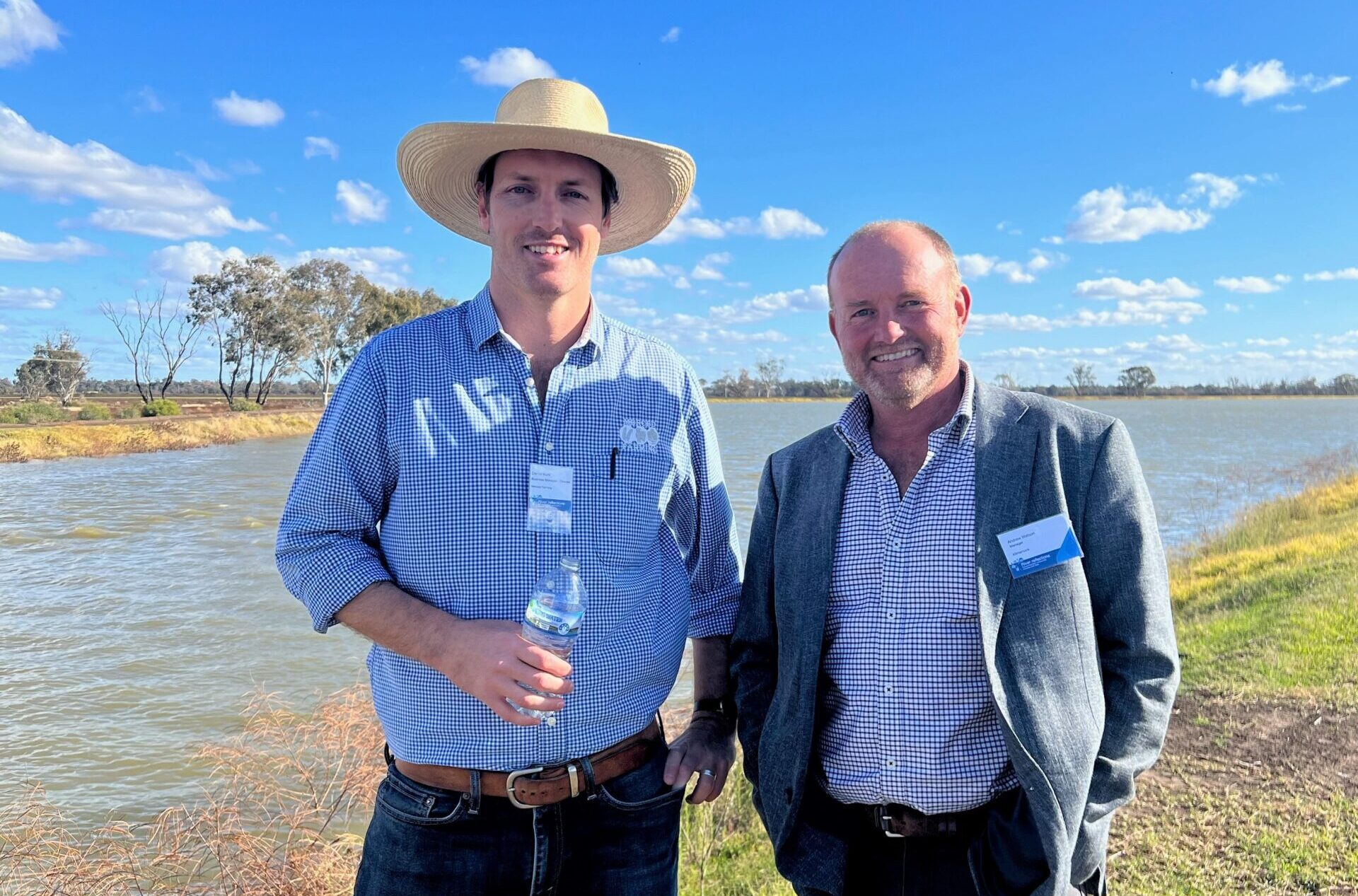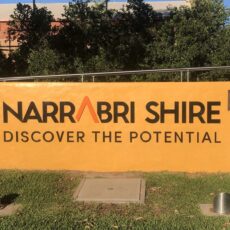The annual Murray-Darling Basin Authority’s River Reflections conference in Narrabri last week brought trust-building and understanding to the forefront of water reform, with local farmers showcasing their water management journey and hopes for facilitating better conversations and connections around the basin.
Coming from irrigation-farming communities, Daniel Kahl and Andrew Watson’s participation was a refreshingly transparent representation of the successes and challenges that local farming communities face in Northern NSW, especially for an area that is ‘often unfairly demonised for misinformation’ around water consumption and irrigators’ roles in the Murray-Darling system.
“As farmers we will do anything to protect and care for the land, including maintaining a healthy river system, because if we don’t then there is nothing to farm,” said Mr Kahl, Merced Farming, Wee Waa.
“When we hear other stakeholders share and describe their inherent bonds with the land, we can relate and also feel like the custodians of our farmland.”
The Murray-Darling Basin Plan brought conference delegates together at The Crossing Theatre to build connections and hear how the plan to share water and care for the basin which provides water to 2.3 million Australians will be managed as the coming 2026 Plan Review draws nearer.
Stakeholders such as environmentalists, First Nations representatives, and local farming communities all had a chance to showcase their basin success stories as well as their hopes for future Basin Plan reviews.
Wee Waa farmer Mr Kahl led a tour of water conference delegates at ‘Glencoe’ and was pleased to provide an out-in-the-field experience that he hoped would educate and build understanding around sustainable irrigation farming practices.
“Often people who come to visit have a bit of an understanding to start with, but among the delegates, some have none and some may have come with misconceptions,” said Mr Kahl.
“It was great having a large mixed group at ‘Glencoe’, standing together on top of a water storage, on top of a floodway, and have the opportunity to explain how we manage the different types of water in our environment and that it’s done responsibly.
“And how our whole farming system is based around achieving great environmental outcomes that link with our farming outcomes.”
Andrew Watson, Kilmarnock Farms, Boggabri was prompted to investigate options to improve the security of his water supply and reduce the risk involved with his farm business after the millennium drought.
Mr Watson’s presentation outlined an honest analysis of the success and challenges of his own “water productivity” journey with an overarching message that water efficiency was a complicated process that often came with the risk of loss.
“Our first year we were told we would make a 40 per cent water saving but we made 25 per cent water savings, but our second year we used seven per cent extra water with seven per cent crop loss,” said Mr Watson.
“The thing is, you’re trying to manage water savings, but also must improve what you do and be efficient because water is a limited resource.
“Overall, the rules for water efficiency are working, we are using less water over time, and when things break or need updating we show up and keep trying to fix it. So how about a little public support?”
The Australian cotton industry has achieved a 40 per cent increase in water productivity over the past decade, with 96 per cent of irrigators having improved or changed their irrigation system.
“The conference was an opportunity to suggest that there had been plenty of good changes for irrigation farming, and have that work recognised,” said Mr Kahl.
“The thing that stood out to me was as people asked questions, you could see a lot of dots being connected, common understanding certainly grew after seeing some shared experience and dialogue whilst out there in the field where things happen.”
“It would be nice if we all had the time to go on a tour of the entire basin and understand each other completely, but we’ve all got day jobs.
“So, where it’s possible, for people to jump on opportunities like this conference or the tours is important, and for people to seek to learn and understand more before adding to the noise that’s often negative around water.
“That might be an even better challenge for the MDBA to grow their conference so that they can grow that level of common learning and understanding that can come from a conference like this.”
Mr Kahl and Mr Watson also both participated in “The Biodiversity Project” in partnership with Country Road, Landcare Australia, and the Australian Cotton industry to restore land along the Namoi River, which they felt was a testament to the industry support so far.
“The communities have always been able to work together, now we’re seeing different institutions such as Country Road and now Landcare Australia show us a lot of support, and we can employ a lot of local people to do the work on our farms,” said Mr Watson.
The two former Nuffield scholars are also passionate about building career pathways for people on the farm so that younger generations are keen to stay, learn and develop a career in their regional communities, including through opportunities like the Nuffield Scholarship.
“Drawing the analogy of the basin as a workplace and discussing the importance of psychological safety on the ground in the metaphorical workplace is something I don’t think has had enough importance placed on it in basin plans so far,” said Mr Kahl.
“I wouldn’t be alone in saying that I don’t feel a lot of psychological safety in our industry when I wake up and hear a negative water story or attend a water meeting, that I then feel safe to work in the basin without vilification.
“And that makes situations even harder when we’re already in a drought, trying to improve or trying to encourage a labour workforce.
At the end of his presentation, Mr Kahl shared his perspective on how water communities should work together to achieve the best possible outcome for a “positive reform” for the environment and the place many call home.
“The theme of the conference is ‘River reflections’, suggesting it is an opportunity to take stock of where we have come from and how far we have come through the many phases of water reform to date.
“In times of challenge, we should look for proven answers to our problems before looking to place blame.
“As a basin community, we should look to keep each other accountable but in a constructive rather than destructive way, and when one stakeholder succeeds, we should build up those successes as our collective success.
“A basin community that can function like that will achieve great things,” he said.
“And attracting people to our basin communities won’t be the challenge that it has been because they’ll see it as the thriving, diverse, productive country that it is and will be jumping at the opportunity to come here and be part of it.
“I look forward to that becoming reality.”
To order photos from this page click here




